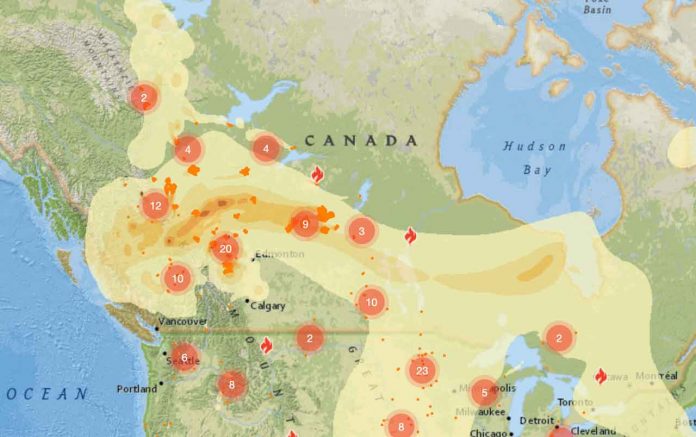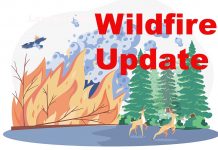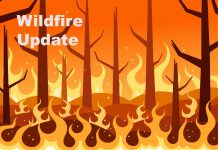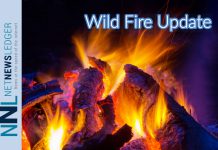Urgent Air Quality Warning for Big Trout Lake and Sachigo Lake Amid Potential Smoke Invasion
SACHIGO LAKE – WEATHER – NetNewsLedger reports an urgent air quality alert for Big Trout Lake, Sandy Lake, Kasabonika Lake, and Sachigo Lake. The regions may experience high air pollution levels tonight due to smoke from ongoing forest fires in the western part of the country.
According to Environment Canada, a cold front could bring smoke to ground level, potentially causing a significant dip in air quality. Residents can find more details on the Environment Canada website.
Exposure to wildfire smoke can be harmful to everyone, even at low concentrations, and all individuals are urged to take necessary steps to limit their exposure. Populations particularly at risk include individuals with lung or heart diseases, older adults, children, pregnant individuals, and outdoor workers.
Health care providers can aid in creating a management plan for such events, including maintaining a steady supply of required medications during the wildfire season.
Residents are advised to reduce or halt physical activity if breathing becomes challenging or health discomfort is experienced. Reach out to health care providers or local health authorities in case of severe symptoms or for further advice.
Monitoring the Air Quality Health Index (AQHI) and personal health symptoms is important during this period. While mild irritation and discomfort from smoke are common and usually dissipate when the smoke clears, drinking ample water can assist in dealing with the smoke’s effects.
For households with HVAC systems, use the highest rated MERV filter your system supports (ideally rated 13 or higher) and set the fan to continuously recirculate air. A portable High Efficiency Particulate Air (HEPA) air cleaner could also be beneficial. It’s advisable to keep doors and windows shut if indoor temperatures are tolerable.
If outdoor activities are unavoidable, wearing a well-fitted respirator type mask, such as a NIOSH certified N95 or equivalent, can help to reduce exposure to the fine particles in smoke. However, these respirators don’t mitigate exposure to gases in wildfire smoke. Hence, listen to your body’s signals and decrease or stop activities if symptoms arise.
Lastly, keep an eye on individuals under your care or those around you who might be more vulnerable to smoke exposure. Continue to stay informed and take precautions as we navigate this weather event together.





